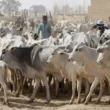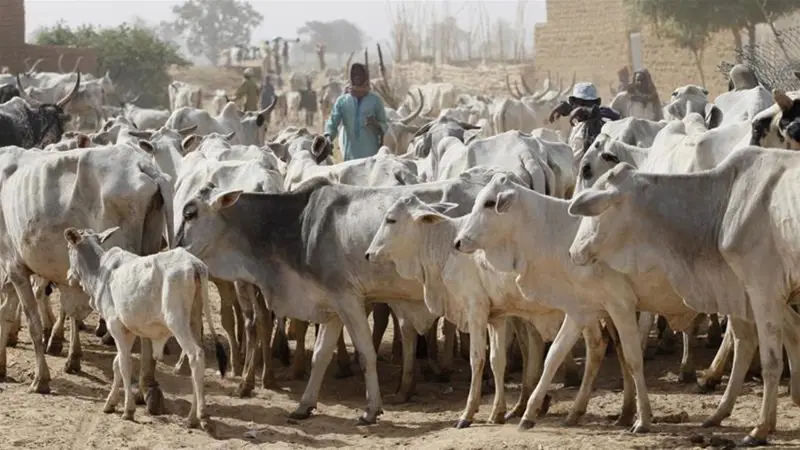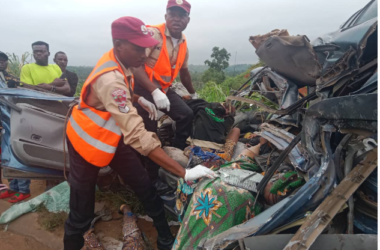Eleven Nigerian states have begun making preparations to set up cattle ranches in response to the growing violence between farmers and herders, which has resulted in multiple deaths in recent weeks.
States like Lagos, Ondo, Plateau, Zamfara, Kano, Nasarawa, Jigawa, Bauchi, Delta, Niger, and Anambra have either allocated land or shown interest in collaborating with the Federal Government on ranching programs.
This move comes as rural communities in Benue and Plateau continue to experience deadly attacks linked to armed herdsmen.
President Bola Tinubu, reacting to the Yelewata massacre where over 200 people were killed, said the attacks were a result of land disputes.
He directed Nigeria’s top security officials to track down the attackers and announced the formation of a peace-building team comprising ex-governors and respected traditional rulers from Benue.
In Lagos, ranching has been in the works for more than three years. Emmanuel Audu, a senior official at the state’s Ministry of Agriculture, noted that the state already has a law against open grazing and is building infrastructure for its ranch.
“We are already implementing the project,” he said. “If there is a need for any collaboration, yes, we welcome it.”
Local residents in Lagos continue to reject open grazing, saying ranching is safer and more sustainable. “Ranching is better because it is more sustainable, secure, and economically productive,” said Emmanuel Sanusi, a Surulere resident.
Other states like Anambra and Ondo also confirmed their support. Ondo currently manages two ranches, though it has not entered a formal partnership with the federal government. The state banned open grazing in 2020, and officials said they were open to private investors interested in ranching.
In Nasarawa, Governor Abdullahi Sule revealed that 22,000 hectares of land have been provided for the FG’s model ranching hub. He noted that this would help reduce the crisis often linked to free movement of cattle.
Zamfara officials confirmed that large areas of land are available for ranching. “We are willing to give out the required hectares of land,” said Mustafa Jafaru, a media aide to the governor.
Plateau is also moving forward, with the state already cooperating with the Federal Ministry of Livestock Development to build grazing areas and upgrade abattoirs.
However, not all states are fully onboard. In Adamawa, the state government said it has only approved land for pasture development and has not yet agreed to ranching. Bayelsa has reserved grazing land, but it’s uncertain if it will commit it for ranching purposes.
Some states like Benue and Edo are cautious. Benue, while enforcing an anti-open grazing law, has not decided if it will release land for ranching. In Edo, officials said discussions are still ongoing.
In Gombe, N60bn has been earmarked by the FG for an agro-livestock hub. While some residents welcomed the move, others expressed worry about displacement and lack of consultation.
Imo State remains divided. While the PDP opposes the idea, experts from a state university say ranching could stop recurring violence.
Kwara and Oyo have adopted mixed strategies. While Kwara is supporting pastoral communities with boreholes and feed machines, Oyo continues to enforce its anti-open grazing law. Over 58 cows have been seized in the last two years, and erring herdsmen have faced legal action.







